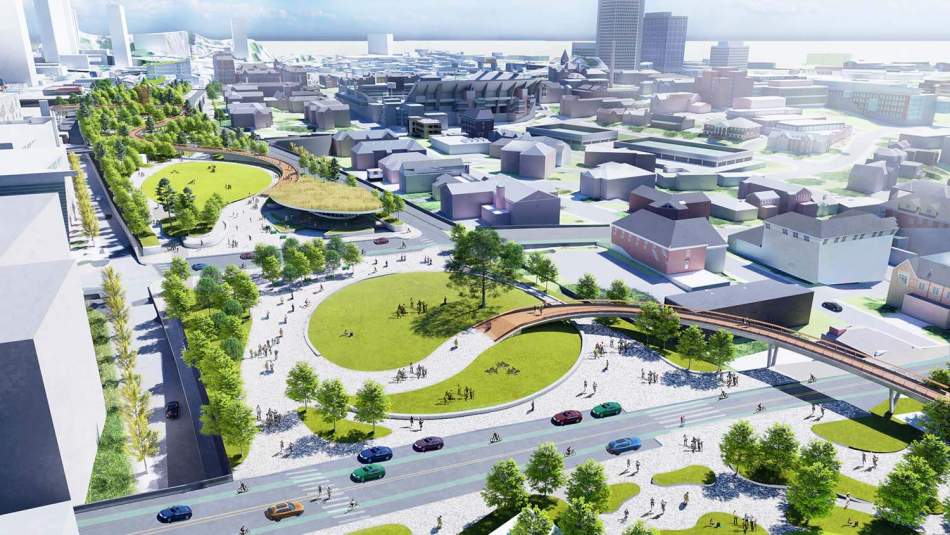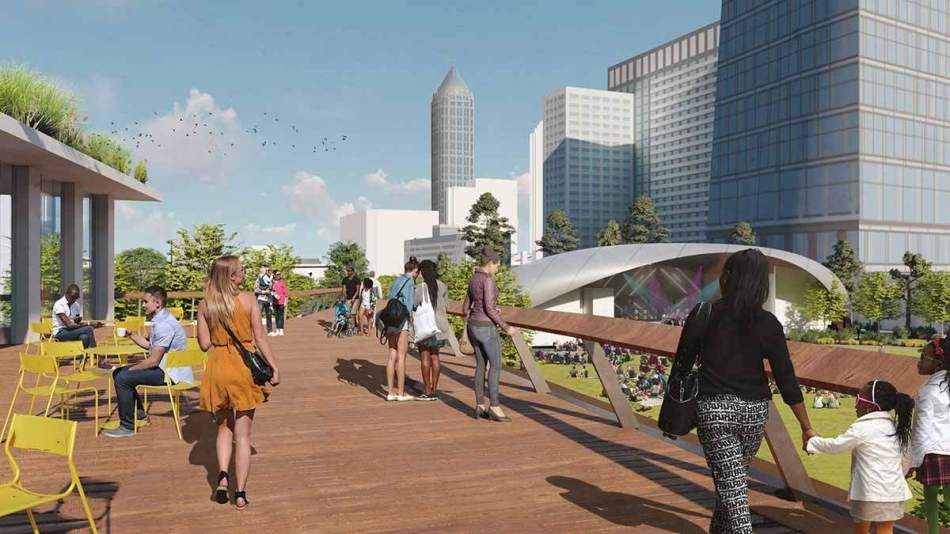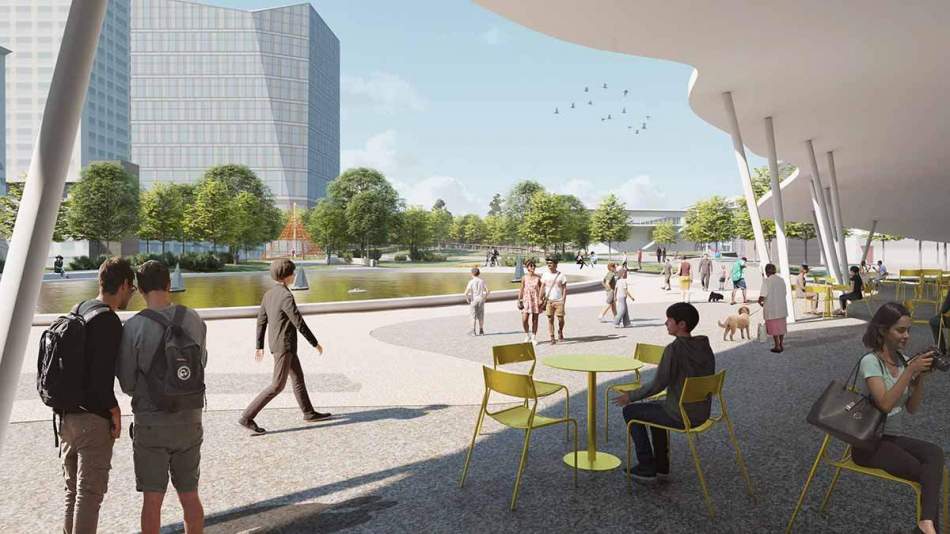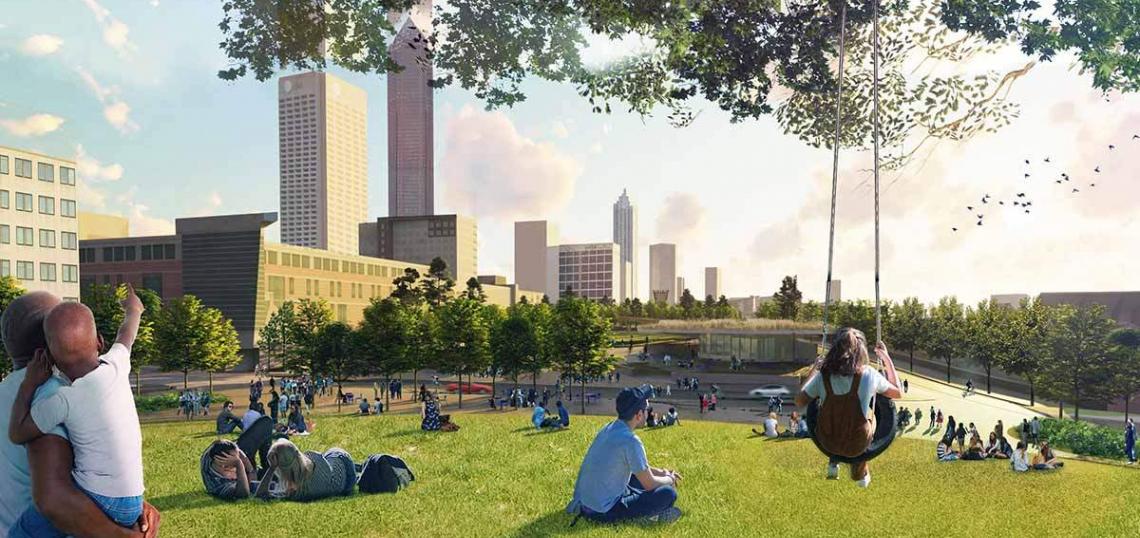It’s been two months since the grand vision emerged for capping Midtown’s river of asphalt with functional park spaces, and the nonprofit organization behind the project continues to lay community groundwork to garner support.
Officials with MCP Foundation—that’s short for Midtown Connector Transportation Improvement Project—are finishing a three-year analysis to determine the feasibility of building 25 acres of active parks and greenspace over 14 lanes of freeway.
The group’s outreach includes a series of seven “virtual community conversations” meant to explain the Midtown Connector in depth from different angles, harvest feedback from the general public, and answer questions. The second video installment—titled “Inspiring Inspiration”—is now live.
 The vision for an expanded Sixth Street over the Connector and through the park, just south of Georgia Tech's McCamish Pavilion. It's an example of new street connections planned.Courtesy of MCP Foundation
The vision for an expanded Sixth Street over the Connector and through the park, just south of Georgia Tech's McCamish Pavilion. It's an example of new street connections planned.Courtesy of MCP Foundation
The 16-minute clip is a “deep dive into the projects around the world that inspired and informed our work,” as the video explains.
The goal of the park’s green elements is to recapture the character of the land, as it was in the late 1800s, when Georgia Tech was a single building, Midtown just a series of stately homes along Peachtree Street, and the rolling landscape still bucolic, with Tanyard Creek slicing through.
According to Taylor Morison, MCP Foundation’s director of strategic relationships, all community feedback will be logged, addressed, and shared on the organization’s website.
Plans call for the Midtown Connector to stretch from 10th Street to North Avenue, with new surface streets in between helping to weave Georgia Tech back into the broader fabric of Midtown.
 Elevated pathways and an amphitheater.Courtesy of MCP Foundation
Elevated pathways and an amphitheater.Courtesy of MCP Foundation
Cost estimates have ranged from $800 million to $1.2 billion—enough to finish the BeltLine at least twice over—and no specific sources of funding have been identified.
But in a more encouraging sign for project supporters, Georgia Tech, Midtown Alliance, and the Georgia Department of Transportation have all lent guidance and technical support, according to the foundation.
The group’s leadership includes former BeltLine CEO Paul Morris.
 A shaded common area with views to the NCR Global Headquarters.Courtesy of MCP Foundation
A shaded common area with views to the NCR Global Headquarters.Courtesy of MCP Foundation
Also on board have been Atlanta-based and international design firms with experience bringing similarly audacious projects to fruition.
Contributors so far have included OLIN Partnership (landscape architecture), Arcadis (engineering), and Smith Dalia Architects, an Atlanta-based firm whose portfolio includes Historic Fourth Ward Park and other large-scale civic endeavors.
• Recent Midtown news, discussion (Urbanize Atlanta)







